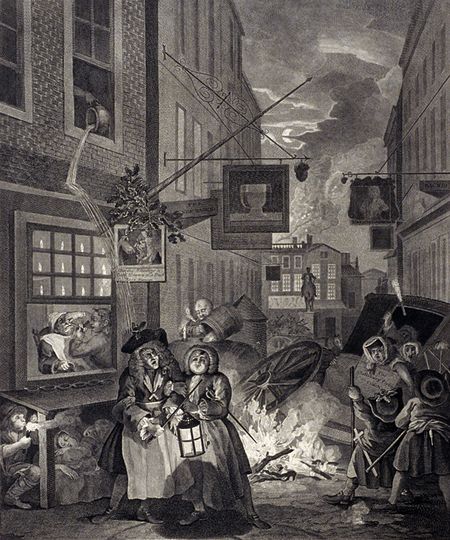Annotation:Rummer (The): Difference between revisions
No edit summary |
No edit summary |
||
| Line 14: | Line 14: | ||
<br> | <br> | ||
A 'rummer' was a drinking glass. However, it is more likely that the tune was named for "The Rummer," a tavern at 45 Charing Cross, London, that eventually became a restaurant called "The Ship," its direct descendant. John Timbs, in his '''Club Life of London, vol. II''' (London, 1866), records that The Rummer stood two doors down from another, more famous London eating house called Locket's or Lockitt's, and was situated midway between the Royal Palace and coffee houses and taverns of St. James's to the north, and the government offices and Parliament to the south. Nearby were the quarters of the Horse Guards (built by Charles II in the 1660's). The Rummer was kept until about 1702 by Samuel Prior, and the clientele was a combination of army officers, Parliamentarians, aristocrats and merchants. A Masonic lodge also met there. In 1710 The Rummer removed to the water-side of Charing Cross, and burnt down Nov. 7th, 1750. Publican Prior was the uncle of poet Matthew Prior [https://en.wikipedia.org/wiki/Matthew_Prior] (1664-1721), who worked in the elder man's establishment (learning the 'tricks' of the trade). Matthew wrote: | A 'rummer' was a drinking glass. However, it is more likely that the tune was named for "The Rummer," a tavern at 45 Charing Cross, London, that eventually became a restaurant called "The Ship," its direct descendant. John Timbs, in his '''Club Life of London, vol. II''' (London, 1866), records that The Rummer stood two doors down from another, more famous London eating house called Locket's or Lockitt's, and was situated midway between the Royal Palace and coffee houses and taverns of St. James's to the north, and the government offices and Parliament to the south. Nearby were the quarters of the Horse Guards (built by Charles II in the 1660's). The Rummer was kept until about 1702 by Samuel Prior, and the clientele was a combination of army officers, Parliamentarians, aristocrats and merchants. A Masonic lodge also met there. In 1710 The Rummer removed to the water-side of Charing Cross, and burnt down Nov. 7th, 1750. Publican Prior was the uncle of poet Matthew Prior [https://en.wikipedia.org/wiki/Matthew_Prior] (1664-1721), who worked in the elder man's establishment (learning the 'tricks' of the trade). Matthew wrote: | ||
[[File:night.jpg| | [[File:night.jpg|450px|thumb|right|Hogarth, "Night", 1738. Note the sign of the Rummer, a drinking glass.]] | ||
<blockquote> | <blockquote> | ||
''My uncle, rest his soul! when living,''<br> | ''My uncle, rest his soul! when living,''<br> | ||
Revision as of 17:44, 21 April 2018
RUMMER, THE. English, Country Dance and Jig (6/4 and 6/8 time). F Major. Standard tuning (fiddle). AABB. The melody first appears as a country dance in John Playford's Dancing Master, 7th edition (1666), and in all subsequent editions of that volume through the 18th and last edition of 1728 (at which time the series was being published by John Young). The melody and dance directions were also published by rival London publisher John Walsh in his Compleat Country Dancing Master (editions of 1718, 1731, and 1754).
A 'rummer' was a drinking glass. However, it is more likely that the tune was named for "The Rummer," a tavern at 45 Charing Cross, London, that eventually became a restaurant called "The Ship," its direct descendant. John Timbs, in his Club Life of London, vol. II (London, 1866), records that The Rummer stood two doors down from another, more famous London eating house called Locket's or Lockitt's, and was situated midway between the Royal Palace and coffee houses and taverns of St. James's to the north, and the government offices and Parliament to the south. Nearby were the quarters of the Horse Guards (built by Charles II in the 1660's). The Rummer was kept until about 1702 by Samuel Prior, and the clientele was a combination of army officers, Parliamentarians, aristocrats and merchants. A Masonic lodge also met there. In 1710 The Rummer removed to the water-side of Charing Cross, and burnt down Nov. 7th, 1750. Publican Prior was the uncle of poet Matthew Prior [1] (1664-1721), who worked in the elder man's establishment (learning the 'tricks' of the trade). Matthew wrote:

My uncle, rest his soul! when living,
Might have contriv'd me ways of thriving:
Taught me with cider to replenish
My vats, or ebbing tide of Rhenish.
So when for hock I drew prickt white-wine,
Swear't had the flavour, and was right wine.
The Rummer is mentioned in George Farquhar's play The Constant Couple (Act 1, scene 1), and its likeness was introduced by Hogarth into his picture of Night (1738). The famous thief and jail-breaker (and working-class hero) Jack Sheppard [2] (1702-1724) committed his first robbery by stealing two silver spoons from The Rummer.
Historically, this tune has been likened to Carolan's "Bumper Squire Jones," and while there a few similarities, particularly at the cadence, they do not seem to be at all cognate (see note for "annotation:Bumper Squire Jones").
